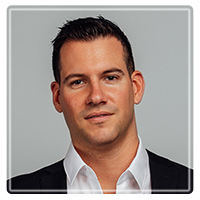
Eating Disorder Counsellor
Emily Popoff, RCC, MA
Registered Clinical Counsellors and Canadian Certified Counsellors
911 Baker St, Cranbrook, British Columbia V1C 1A4 | 7786874122
Counselling plays a pivotal role in the treatment of eating disorders, offering a safe and supportive space where individuals can address the complex psychological and emotional factors that contribute to their disordered eating behaviours. Therapists specializing in eating disorders employ various therapeutic approaches, such as Cognitive-Behavioural Therapy (CBT), Dialectical Behaviour Therapy (DBT), and Family-Based Therapy (FBT), to help individuals explore the underlying causes, challenge distorted beliefs about body image and food, develop healthier coping mechanisms, and foster a positive self-image. Through counselling, individuals can gain the tools and insights necessary.

Eating Disorder Counselor
Philip Starkman, MSW, RSW
Registered Psychotherapist
Available for Online Therapy
Eating disorders benefit from the same or similar approach used for all addictive behaviours. One of the main therapeutic approaches I use is Mindfulness Based Cognitive Therapy. The relationship to food can be quite complex involving societal or cultural pressures, self-image, past traumas, addictive non-nutritious junk food, media images, social media pressures, bullying. Shame and guilt need to be addressed along with peer pressures. The most common eating disorders are: Anorexia, Bulimia, Binge Eating, Pica, Rumination Disorder, Avoidance/Restrictive Food Intake Disorder (ARFID), Orthorexia, Purging Disorder etc. The benefits of therapy are enhanced self-image, health and well-being.

Eating Disorder Counselor
Steve Rose, PhD
Addiction Counsellor
Available for Online Therapy
I help clients overcome addictive relationships with food. Like all addictions, the behavior is the tip of the iceberg, used to cope with underlying thoughts and emotions. Through collaborative conversations, clients gain insight into underlying concerns, gaining coping skills to more effectively navigate these issues. I draw on Acceptance and Commitment Therapy (ACT) and Motivational Interviewing (MI), helping clients achieve a sense of freedom and control over their lives, leading to long-term change.

Eating Disorder Counselor
Shannon Ritchie, MC, RCC
Registered Clinical Counsellor
Available for Online Therapy
Our relationships with our bodies are greatly impacted in a society that places more value on a specific body shape and appearance. The social pressure to confirm to this ideal are at the root of eating disorders. However, we locate the problem within the individual. Through counselling we can examine the individual experience of your experience and the loved ones who are also affected. We will also explore the role of social context and social pressure. One of the goals of therapy will be to strengthen other narratives of the individual. For example, that the identify of an "eating disorder" is not the individual only identity.

Eating Disorder Counselor
Valentina Chichiniova, RCC, CCC
Registered Clinical Counsellor, Canadian Certified Counsellor
Available for Online Therapy
EMDR therapy can be a useful tool in treating eating disorders by addressing the underlying emotional issues that may contribute to disordered eating behaviors. Trauma, negative self-image, and other emotional factors can contribute to the development of eating disorders. EMDR therapy works to reprocess these negative emotions and beliefs, helping individuals develop a more positive self-image and reduce the urge to engage in disordered eating behaviors. EMDR can also be used to address triggers that may lead to binging or purging, and to develop healthier coping mechanisms. By addressing the emotional factors that contribute to eating disorder, EMDR can be an effective tool in recovery.

Eating Disorder Counsellor
Joanna Copeland Butt, MC, RCC
Registered Clinical Counsellor
21 - 13th Avenue S, Unit 5, Cranbrook, British Columbia V1C 2V4 | 250-919-4245
I work with clients who have an eating disorder and experience disordered eating by providing an environment where they can talk about their experiences and fears without being judged or told what to do. Yes, we do talk about food but more importantly my focus is on helping clients develop mindful self-compassion as they discover the distressed parts of them which need comfort, reassurance and acceptance, then explore how they can give those gifts to themselves over time.

Eating Disorder Counselor
Kevin Fleming, Ph.D.
Coach/Change Agent/Consultant
At Home or Private Discreet Intensives
While most eating disorder issues are treated by cognitive behavioral methodologies or specialized outpatient/inpatient programs, Grey Matters International and the work of Kevin J. Fleming, PhD provide relief first and foremost for the brain of one suffering from an eating disorder----without giving them medication. We believe that the neural circuitries responsible for the compulsive behaviors with eating are not necessarily only a neurotransmitter issue but of overused neural networks that affect the harmonization, balance, and decisions of the whole brain. Contact kevin@kevinfleminphd.com or 877-606-6161 to learn more about this safe and effective alternative.
You Have Found Honest and Real Therapy for Food Issues in Cranbrook, BC.
Are you ready to start on a new path? Thank you for visiting our British Columbia search of licensed therapists in Cranbrook who specialize and have experience treating food issues such as anorexia, over eating, food aversions, orthorexia nervosa and bulimia. Food issues affect anyone, both children and adults and can impede our relationships and daily life. Counselling for help with food and eating is a vital component of healthy recovery and restoration. Find the right counselor for eating and food issues in Cranbrook right now and begin your new life.
Cranbrook is located in British Columbia, Canada. It has a land area of 32.00 square kilometers. The population of Cranbrook is 21,308 people with 8,545 households . The population ranking for Cranbrook is #214 nationally and #33 for the province of British Columbia with a density of 626.60 people per sq km. Cranbrook therapists serve postal code: V1C.
